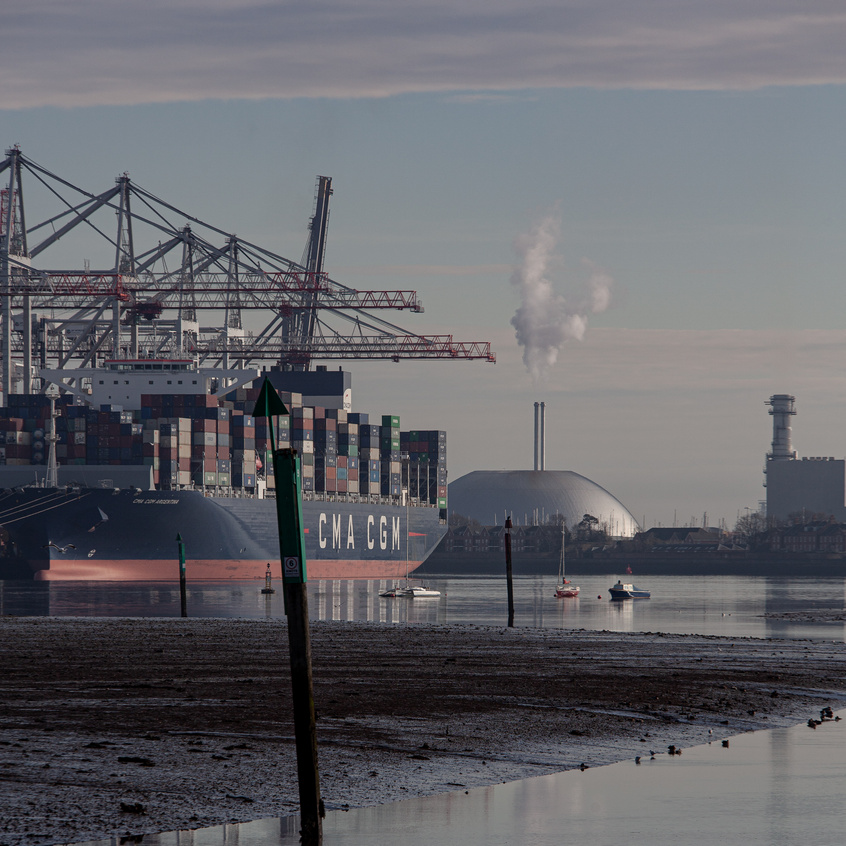by Charlie Hislop.
Christmas has come early to Southampton and the Solent region apparently, with the final approval by the Government of the Solent Freeport proposal. That is according to Government Minister Dehenna Davison who was in the region to make the announcement.
“This Freeport is going to give local economies a shot in the arm and unlock a new state of the art business space and create tens of thousands of highly skilled jobs.” she said. However, Labour leader Keir Starmer has said that creating Freeports as a way of stimulating economic growth and creating new jobs was a matter of ‘blind faith’, and the evidence supports his view.
The Office of Budget Responsibility, which provides an assessment of economic policy for the Government found no indication that Freeports would produce growth or new jobs. It concluded that a Freeport would simply attract investment and business from other areas that want to take advantage of the preferential tax treatment and de-regulation. Previous research into similar schemes – such as Enterprise Zones in the 1980s – found that once grants and exemptions played out, the businesses folded or moved away.
It has also been widely established that the removal of import/export restrictions and duties in freeports has been associated with increases in criminal activity and corruption. Paul Monaghan, chief executive of the Fair Tax Mark scheme, says: “These ‘sleaze ports’ are very much mini-tax havens domiciled within the UK. Where they have been introduced elsewhere they have “proved magnets for illicit financial flows and criminal activity.”
Freeports operated by DP World – the global corporation that manages Southampton’s container port and a Solent Freeport partner until earlier this year when its subsidiary P&O Ferries sacked all its cross channel workers – have been identified as hubs for contraband tobacco and breaking international sanctions against Iran.
The Freeport programme was announced by then Chancellor Rishi Sunak in his March 2021 budget. They are areas where businesses can claim tax and business rate relief, particularly on land and development; avoid import and export duties; and gain exemption from paying national insurance on new jobs. The Solent Freeport area runs along the coast from Havant and Portsmouth, through Southampton, and takes in a large part of the New Forest, and the Isle of Wight.
The immediate plans for Southampton include investment in the port itself, and new greenfield site business space development next to Southampton Airport. With local authorities involved on the Board of the Freeboard, it is not clear how council planning powers will be affected. Of particular concern is Dibden Bay, the subject of a planning inquiry in 2002 that resulted in protection of the unique natural environment following a campaign involving 25,000 local people. It is highlighted on the Freeport map amongst other development sites as the ABP Strategic Land Reserve.
Labour council leader Satvir Kaur has welcomed the Freeport on the basis that it was going to happen, it might present an opportunity, and it is better to ‘be at the table’. She says that the council has used the opportunity to promote Green growth, involve unions and ensure workers’ rights and skill development.
While local politicians and business leaders welcomed the announcement, there was total silence from anyone else. Few people know it’s happening or what it will mean for them as there has been no consultation, despite the freeport Board “working hard on it for years now.”
Solent Freeport is a private limited company, and therefore not publicly accountable. The Board of the Solent Freeport does include six local council nominees from across the region. But it also includes five private representatives – ABP, the Airport, Solent Gateway, the Solent LEP and an independent Chair. With the wide diversity of party political and area-based rivalries among council representatives from the region it cannot be claimed that this has any democratic accountability or legitimacy.
The Freeport is a further instance of local people being removed from decisions or even consultation over things that affect their locality, lives and communities, and of private companies or unaccountable organisations taking control over areas of public life. In the City, ‘Go! Southampton’ now runs the city centre on behalf of local businesses and takes a proportion of the area’s business rates.
Business rates in a Freeport will be retained for spending in the local area, which simply restores the previous position up to the late 1980s before the then Conservative government centralised business rates as part of the retreat from the Poll Tax. With businesses campaigning strongly for Business Rates relief and the Labour Party committed to scrapping then and replacing them with a new national taxation system, this one communal benefit is likely to be short-lived.
- In Common is not for profit. We rely on donations from readers to keep the site running. Could you help to support us for as little as 25p a week? Please help us to carry on offering independent grass roots media. Visit: https://www.patreon.com/incommonsoton

